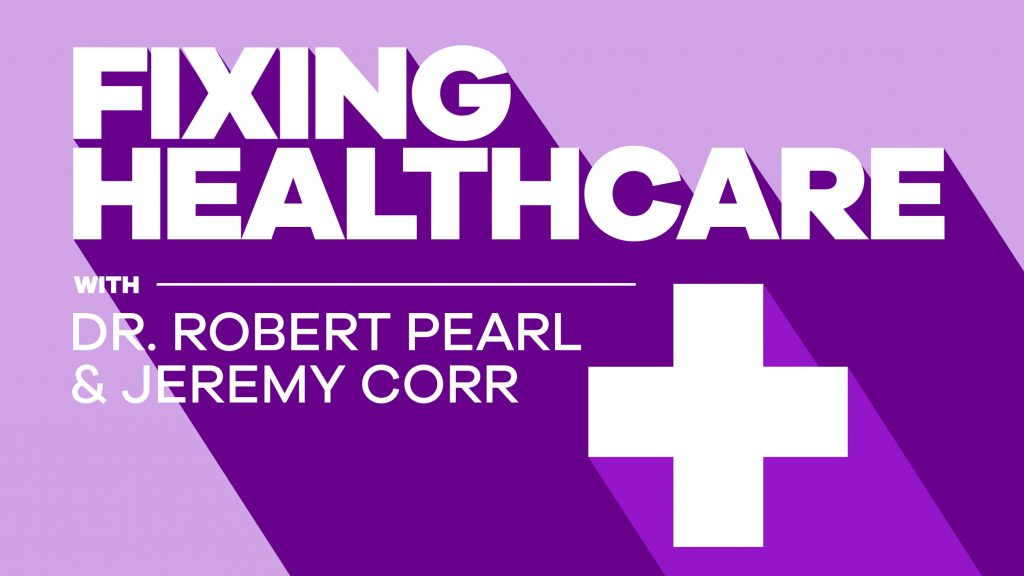At the end of Episode 13, Fixing Healthcare co-hosts Dr. Robert Pearl and Jeremy Corr turned to listeners for ideas and suggestions.
This regular feature of Season 3 comes by way of the new Fixing Healthcare Survey. Please continue to give us your input. Robert and Jeremy might share your ideas on a future episode.
This month, Matt Long and Daniel Riney told us that the government should promote greater price transparency throughout the healthcare system.
Transcript from Fixing Healthcare (Episode 13)
ROBERT: Before we go, let’s take a few minutes to hear some of the many suggestions from our listeners. The new “Fixing Healthcare Survey” contains two questions. The first asks listeners to rank the ideas they hear in Season 2. The second question asks, “how can the U.S. government can BEST improve healthcare?” We want to hear your thoughts on both of these survey questions at RobertPearlMD.com.
JEREMY: Many of our listeners pointed to the lack of price transparency when it comes to their medical care. Matt Long said that change will come through, quote, price transparency and hospital competition, just like all other private industries. Daniel Riney wrote that consumers have the right to know what they will pay for a service prior to receiving that service. He says healthcare is one of the only remaining industries where consumers are left in the dark until services are already rendered. Robbie, you’re a strong proponent of greater pricing and cost transparency in healthcare, especially when it comes to our nation’s hospitals and drug companies. What do you think about our listeners’ suggestions?
ROBERT: Like Matt and Daniel, I believe that transparency is a first step. Hospital costs remain the most expensive part of the bloated American healthcare system. In a Forbes article I wrote on the subject titled, “Three ways to stop hospitals from overcharging patients,” I recommended 1) Unmasking the charge master. 2) Capping out of network fees 3) and simplifying billing, by forcing hospitals to bundle their fees. The combination, if done well, would allow patients to know what it will cost to deliver a baby or have a total joint replaced in advance, offering greater competition and hopefully lower prices.
JEREMY: Once again, thanks to Matt Long, Daniel Riney, and everyone who has participated in the new Fixing Healthcare survey so far on robertpearlmd.com.
READ: Full transcript for Episode 13
* * *
Fixing Healthcare is a co-production of Dr. Robert Pearl and Jeremy Corr. Subscribe to the show via Apple Podcasts or wherever you find podcasts. Join the conversation or suggest a guest by following the show on Twitter and LinkedIn.

